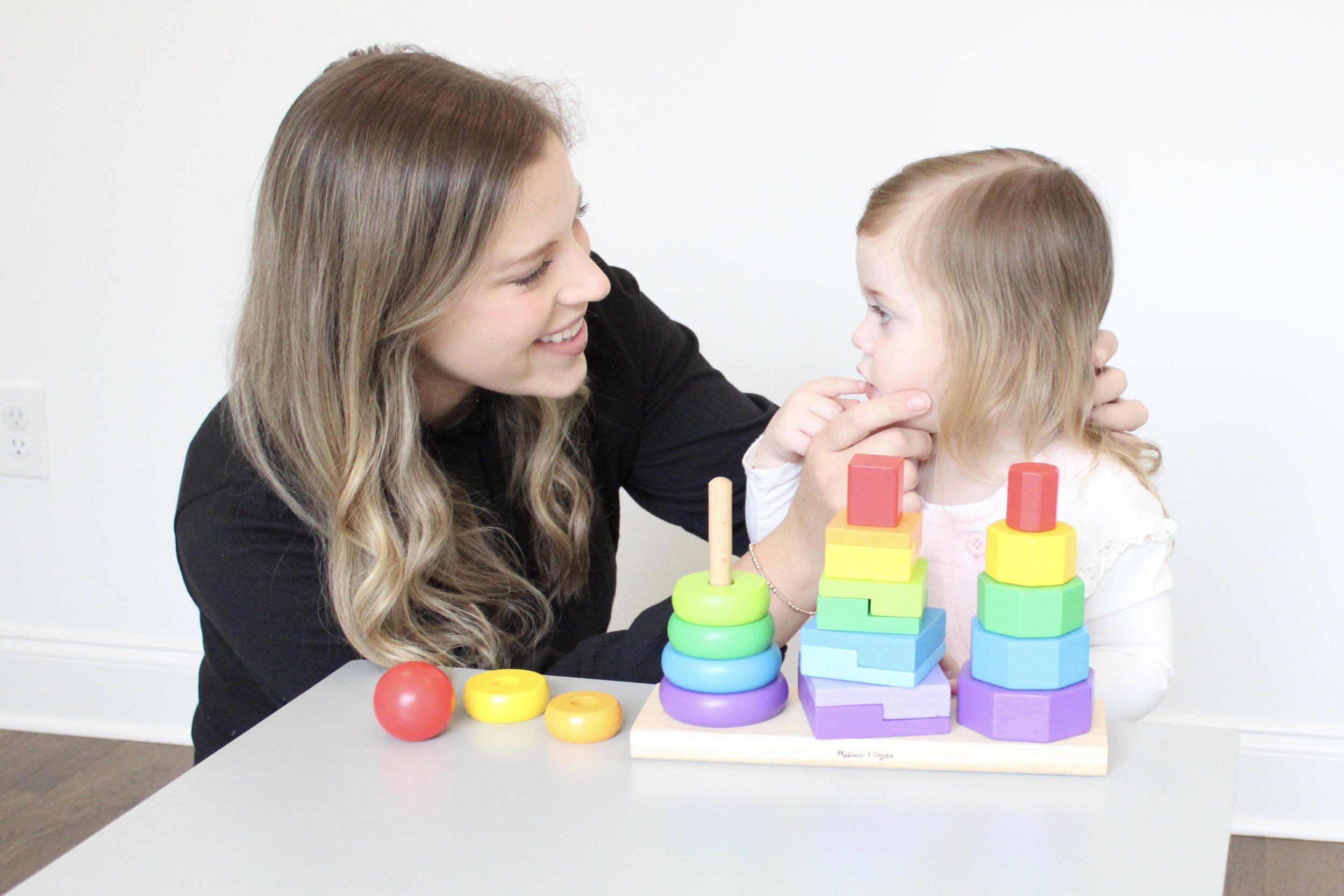Learn about our services
-
We offer a free consultation to discuss any concerns you may have regarding your child’s communication development. We are also happy to answer any questions you may have regarding speech therapy and our treatment techniques. We look forward to hearing from you and embarking on this journey together!
-
Following our free consultation, an evaluation may be recommended. Evaluations are used to establish your child’s communication baseline, strengths and weaknesses. Following an evaluation, a comprehensive evaluation report will be provided to each family. If therapy is recommended, goals will be made in collaboration with caregivers and treatment will be initiated.
-
Therapy sessions consist of evidence-based strategies to improve your child’s communication and/or feeding skills. We keep these sessions fun and engaging by incorporating play into our treatment. We have found that keeping play at the heart of each session enhances a child’s participation and progress. Another key element to Magnolia Therapy Team sessions is caregiver involvement. By including caregivers in our sessions, carryover for each learned skill increases across all settings.
-
Speech Sound Disorders
These are problems with making sounds in syllables, or saying words incorrectly to the point that listeners can't understand what's being said.
-
Expressive Language
Expressive language disorders are problems with language output. Examples may include having a limited vocabulary or combining words together to make phrases and sentences.
-
Receptive Language
Receptive language disorders are problems with understanding or processing language. Examples may include understanding basic commands, identifying pictures or common objects in books or around the home.
-
Fluency Disorders
These include problems such as stuttering, in which the flow of speech is interrupted by unusual stops, partial-word repetitions ("b-b-boy"), or prolonging sounds and syllables (sssssnake).
-
Cognitive-Communication Disorders
Cognitive-communication disorders are problems with communication skills that involve memory, attention, perception, organization, regulation, and problem solving.
-
Pragmatic Language Disorders
Pragmatic language disorder is a condition in which someone has difficulty communicating both verbally and nonverbally in social situations.
-
Feeding and Swallowing Disorders
Feeding disorders include problems with sucking, eating from a spoon, chewing, or drinking from a cup. Swallowing disorders, also called dysphagia, are difficulties with moving food or liquid from the mouth, throat, or esophagus to the stomach.
-
AAC
Alternative and Augmentative Communication (AAC) means all of the ways that someone communicates besides talking. This may include low-tech (picture cards/boards) or high-tech (communication devices) systems.
